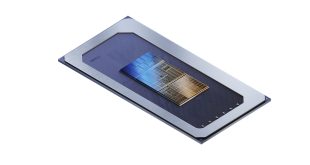During the Zen 5 Tech Day, the AMD XOC (Extreme Overclocking) team wowed the audience with a live demonstration of Ryzen 9 9950X overclocking, pushing the upcoming 16-core CPU to 6.6GHz and breaking some records while at it.
In the video from Gamer Nexus, we see AMD's XOC team used the Asus X670E ROG Crosshair Gene motherboard. The flagship 16-core Zen 5 CPU was the star of the show, pushed to its limits within a liquid nitrogen container and undergoing rigorous testing. Interestingly, while AMD Ryzen Master typically takes centre stage during such demonstrations, this time around, it was a custom program developed by Asus that took over.
The XOC team testing shows that the Ryzen 9 9950X scores 41,924 points at stock speeds in CB R23 multi-core testing. This score can be increased by 4.7% with PBO and EXPO enabled. Adding Curve Shaper to PBO and EXPO is claimed to improve performance by up to 8.1% over stock.
Moving on to LN2 overclocking, we see a 27.8% performance bump over stock. Consuming a whopping 552W and running at temperatures as low as minus 90ºC, the CPU achieved an impressive 53,557 points in Cinebench R23 to set a new 16-core world record. The CPU was overclocked to an impressive 6.3GHz, but the team claimed it could hit 6.6 or even 6.7GHz in CB R23 with the right settings.
In Cinebench R15, the CPU scored 8,203 points, also setting a new world record for 16-core CPUs. On WPrime (32M), the overclocked CPU was pushed to 6.6GHz and scored 1.383s, but couldn't beat the 1,061s record.
Discuss on our Facebook page, HERE.
KitGuru says: As we move closer to the processor's official launch, we can expect even higher results and more world records set using an overclocked Ryzen 9 9950X.
 KitGuru KitGuru.net – Tech News | Hardware News | Hardware Reviews | IOS | Mobile | Gaming | Graphics Cards
KitGuru KitGuru.net – Tech News | Hardware News | Hardware Reviews | IOS | Mobile | Gaming | Graphics Cards


